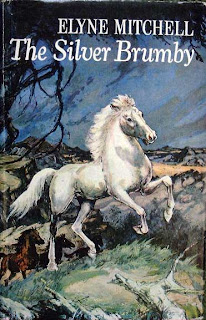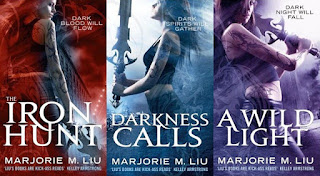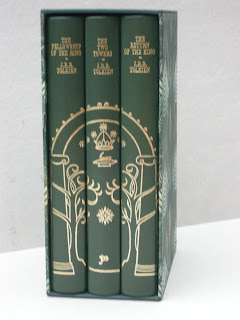Urban fantasy is a sub-genre of fantasy defined by place; the fantastic narrative has an urban setting. Many urban fantasies are set in contemporary times and contain supernatural elements. However, the stories can take place in historical, modern, or futuristic periods. The prerequisite is that they must be primarily set in a city.
The term 'urban fantasy' was somewhat stolen by the 'paranormal romance' subset of fantasy/horror - what used to be merely fantasy tales set in cities, such as Charles de Lint's marvellous Newford sequence, now became fantasy about kick ass heroines in leather with guns hunting vampires.
Whichever way you look at it, urban fantasy encompasses some of the finest novels committed to paper. Here is a handy guide taking you from A-Z.
This is the second part of my A-Z article - the first can be found HERE.
N - Neverwhere
My very favourite Neil Gaiman book, Neverwhere is very definitely an example of urban fantasy in the Charles de Lint mould - fantasy where the city takes on a true character. Check out the blurb:
Under the streets of London there's a world most people could never even dream of. A city of monsters and saints, murderers and angels, and pale girls in black velvet. Richard Mayhew is a young businessman who is about to find out more than he bargained for about this other London. A single act of kindness catapults him out of his safe and predictable life and into a world that is at once eerily familiar and yet utterly bizarre. There's a girl named Door, an Angel called Islington, an Earl who holds Court on the carriage of a Tube train, a Beast in a labyrinth, and dangers and delights beyond imagining ... And Richard, who only wants to go home, is to find a strange destiny waiting for him below the streets of his native city.
The book actually came about as a result of the 1996 TV series that Neil Gaiman devised with Lenny Henry.
Neverwhere was first broadcast on BBC Two from September 12, 1996. There are six half-hour episodes:
Door
Knightsbridge
Earl's Court to Islington
Blackfriars
Down Street
As Above, So Below
O - Otherworld
When I talk about Otherworld, I could be referencing the various myths and legends across the world that encompass a world that is "other" - supernatural and strange. What I am actually talking about is the Women of the Otherworld series created by Kelley Armstrong, an absolute staple of the urban fantasy ouvre.
Kelley has so far written twelve novels, with various other short story collections and graphic novels. These novels stand out because Kelley has utilised various different character perspectives for each book, rather than sticking with the same characters.
P - Paranormal
The element that really defines urban fantasy as it is right now is the paranormal - the werewolves, the vampires, the witches, the magic, the demons, the fae... Paranormal romance is a term intertwined with urban fantasy, usually emphasising the relationship between the main characters more than the latter will.
Q - Quinn
Q is a really hard letter! I would welcome your suggestions, but I decided to go with Quinn - and then talk more about Sookie Stackhouse than Quinn (in a big ole cheat of a letter!) Quinn appears later on in the Sookie Stackhouse novels by Charlaine Harris and gives me a handy excuse to showcase one of the very popular urban fantasy series. This series has received a spike in sales recently thanks to the success of the TV series True Blood, based on the Sookie novels.
They are quirky and generally light-hearted, and include some great male characters - including the aforementioned Quinn (although Eric is my favourite!)
R - Rivers of London
Ben Aaronovitch exploded onto the urban fantasy scene earlier this year with 'Rivers of London', described by some as Harry Potter meets Neverwhere (and released as Midnight Riot in the States). It garnered many favourable reviews, including
mine, and has so far spawned an additional two novels in the series - Moon Over Soho and the forthcoming Whispers Under Ground.
S - Sex
Bit raunchy, this one, but you can't discuss urban fantasy these days without talking about the sex. Authors like Laurell K Hamilton, Kelley Armstrong, Charlaine Harris etc all include strong sex scenes in their novels. Of them all, Laurell K has gone down the strangest route, with strong S&M themes, furries, snuff and rain making all now crowding the pages of her novels.
Personally I like a good sex scene, but sometimes it goes a little far in urban fantasy!
And, no, you're not getting any images for this entry!
T - Tattoos
Writinghood came up with a list of urban fantasy cliches, and front and centre was the issue with tattoos:
And while we’re talking about the cover model, what is up with the idea that the woman must always be wearing the same type of clothing (belly-baring or bra-as-shirt and low-rise jeans) and always be covered in tattoos? If we have read more than one urban fantasy series, we get that she’s supposed to be tough. Not to mention, if these tattoos have no significance to the novel ( such as, they don’t serve as a connection to the supernatural, or they aren’t a mark or calling card), they really aren’t necessary.
Read more: http://writinghood.com/writing/urban-fantasy-cliches/#ixzz1W8HOuCQR
Luckily, we are now getting some urban fantasy novels where the tattoos provide a crucial part of the plot, key amongst them the Hunter's Kiss trilogy by Marjorie M Liu:
In addition to this, some of our heroines from urban fantasy are taking back tattoos from the mainstream - making it as ballsy and original a habit as it used to be, such as Stacia Kane's heroine Chess:
I also want to give a shout out to Blood Rights, coming soon from Orbit, where the main character bears the marks on her body of a comarré - a race of humans bred to feed vampire nobility.
U - Urban Settings
Yep, we've already mentioned London. Here are some other awesome urban settings, from the imaginary to the very real.
Stacia Kane - The Downside, part of Triumph City (fictional, but based on an American City)
Kelley Armstrong - Toronto (real!)
Laurell K Hamilton - St Louis (real!)
Jim Butcher - Chicago (real!)
Tanya Huff Blood series - Toronto (popular place)
Kim Harrison - Cincinnati
Pretty much every major urban fantasy series will have a very strong sense of place, and describe the city in depth, which adds to the feel of the novels.
V - Vampires
From the feral and mindless, to the sleek and courtly, vampires have found their way into urban fantasy by the bucketload. One of my favourite characters is Jean-Claude (although he has become toothless in recent novels compared to his restrained hunger from the early Anita Blake novels).
I like vampires still, but I have found they've become ubiquitous to urban fantasy novels. The list of those who still include them would run to many, and it can get a little dull which, I suspect, is why there has been a move away from vampires to tackle other supernatural beings.
Vampires have been around since the writing of Dracula and even prior to that, and I don't see them going away entirely any time soon!
W - Werewolves
From one creature to another. We've seen a rise in popularity of werewolves as well, in recent times, and it is odd how many times how heroine has to pick between a werewolf and a vampire in a love triangle! Probably because of how very different their natures are...
Here is a selection of the novels available featuring werewolves:
- Wolf Moon by Charles de Lint
- Blood Trail by Tanya Huff (second in the Blood series)
- The Anita Blake series (from the second novel onwards)
- Fool Moon by Jim Butcher (second in the Dresden files)
- Bitten by Kelley Armstrong (first in the Women of the Otherworld series)
- Kitty and the Midnight Hour by Carrie Vaughn
- Moon Called by Patricia Briggs
- Club Dead by Charlaine Harris
- The Twilight series by Stephenie Meyer
- Lonely Werewolf Girl by Martin Millar
X - X-Files
Alright, so X is hard as well - and this only loosely fits under urban fantasy. But there were a number of X-Files episodes that dealt with urban fantasy i.e. folklore and fairytales that occurred in cities. I would include the character of Tooms under this definition (still one of the ONLY things to freak me out and give me nightmares!)
For me, the X Files helped to establish the idea of supernatural and investigative work going hand in hand.
Y - YA Urban Fantasy
For me, since Twilight (yes, it can be argued this is paranormal romance rather than urban fantasy, as one of the commentators to the previous A-Z post pointed out, but I class them rather under the same banner since they're so hard to segregate), there has been an explosion of novels that could be deemed YA Urban Fantasy.
I'm talking about series like the House of Night, like Blue Bloods, like Vampire Academy. They take urban fantasy back a stage, so that there is much less sex and more wondering about whether a boy likes you (and, of course, whether he is a vampire!)
This books can be identified in book stores by the black covers, the beautiful cover models in flowing dresses, the dark fantasy aspect of them. Some bookstores now have separate sections altogether for this explosion of category.
Z - Zombies
Again, this is a tenuous link at best, thanks to the difficulty of the letter. If anyone with good knowledge of urban fantasy would like to pitch in and suggest something else, then please do!
For this, I would say that the Anita Blake novels do feature zombies on occasion, and novels like I Am Legend take place in a city, so technically urban fantasy... Yep, I'm scraping the barrel!
So, there you have it! My A-Z of Urban Fantasy! Please do chip in with your own suggestions, and don't forget to check out the rest of my A-Z series!















































